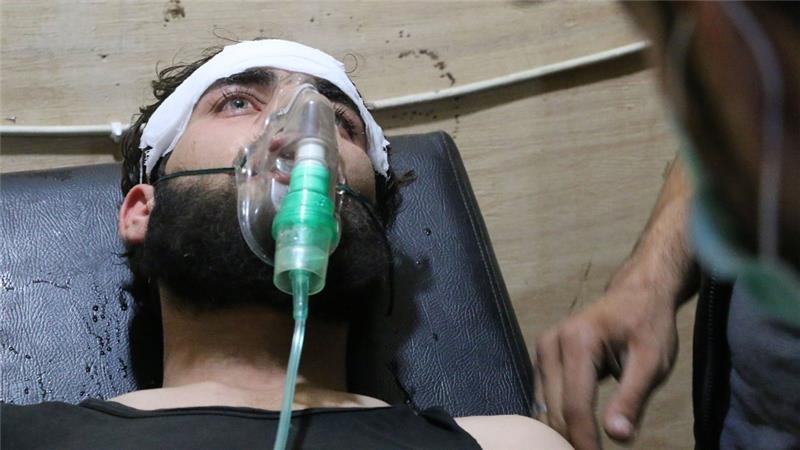A confidential report by the global chemical weapons watchdog has found mustard gas again being used in Syria, according to the Reuters news agency.
According to Al Jazeera sources the gas was used during violence between Islamic State of Iraq and the Levant (ISIL) and a rebel group in the northern town of Marea in August.
It’s the first confirmation of sulphur mustard being used in Syria since the country agreed to destroy its chemical weapons stockpile.
A confidential October 29 report by the Organisation for the Prohibition of Chemical Weapons (OPCW), a summary of which was shown to Reuters, concluded “with the utmost confidence that at least two people were exposed to sulphur mustard” in the town of Marea, north of Aleppo, on August 21.
“It is very likely that the effects of sulphur mustard resulted in the death of a baby,” it said.
The findings provide the first official confirmation of use of sulphur mustard, commonly known as mustard gas, in Syria since it agreed to destroy its chemical weapons stockpile, which included sulphur mustard.
The report did not mention ISIL, as the fact-finding mission was not mandated to assign blame, but diplomatic sources said the chemical had been used in the clashes between ISIL and another rebel group taking place in the town at the time.
“It raises the major question of where the sulphur mustard came from,” one source said. “Either they [ISIL] gained the ability to make it themselves, or it may have come from an undeclared stockpile overtaken by ISIL. Both are worrying options.”
Chemical Weapons Convention
Syria is supposed to have completely surrendered the toxic chemicals 18 months ago. Their use violates UN Security Council resolutions and the 1997 Chemical Weapons Convention.The report, which will be formally presented to UN Secretary General Ban Ki-moon later this month, adds to a growing body of evidence that ISIL has obtained, and is using, chemical weapons in both Iraq and Syria.
Kurdish authorities said earlier this month that ISIL fighters fired mortar rounds containing mustard agent at Kurdish Peshmerga fighters in northern Iraq during clashes in August.
A team of OPCW experts has been sent to Iraq to confirm the findings and is expected to obtain its own samples later this month, one diplomat said.
Sulphur mustard – which causes severe delayed burns to the eyes, skin, and lungs – is a so-called Schedule 1 chemical agent, meaning it has few uses outside warfare.
A second report by the OPCW fact-finding mission to Syria said the team had so far been unable to substantiate claims from the Syrian government that its forces had been targeted by rebels using chemical weapons.
Syria agreed in September 2013 to destroy its entire chemical weapons programme under a deal negotiated with the United States and Russia after hundreds of people were killed in a sarin gas attack in the outskirts of the capital, Damascus.






 WhatsApp us
WhatsApp us 


1 comment
a previous report from the chemiical warfare watchdog quoted by voc said that a probable source of the gas was from turkey, it waso reported that at the time of the gas explosions the assad forces were nowhere in the area hence its assessment that it was anti state groups who targetted each other…..